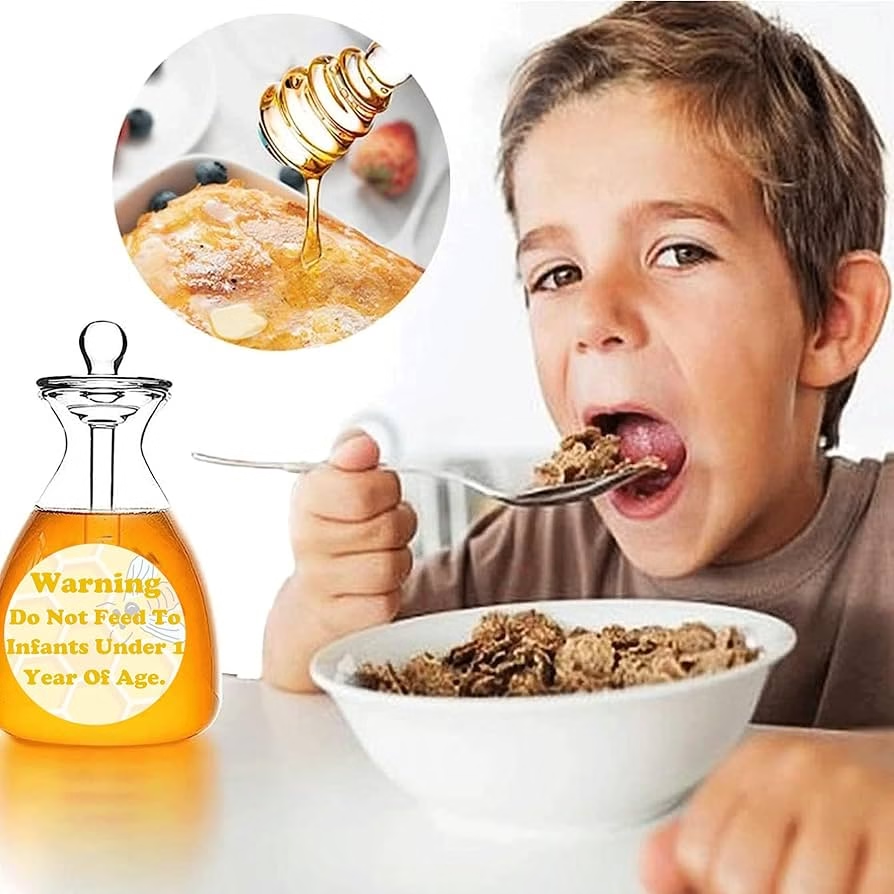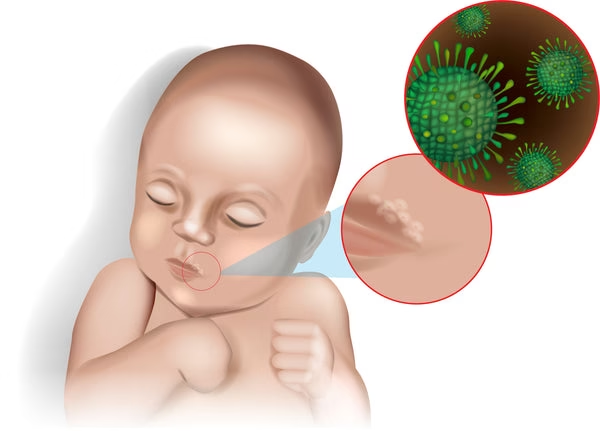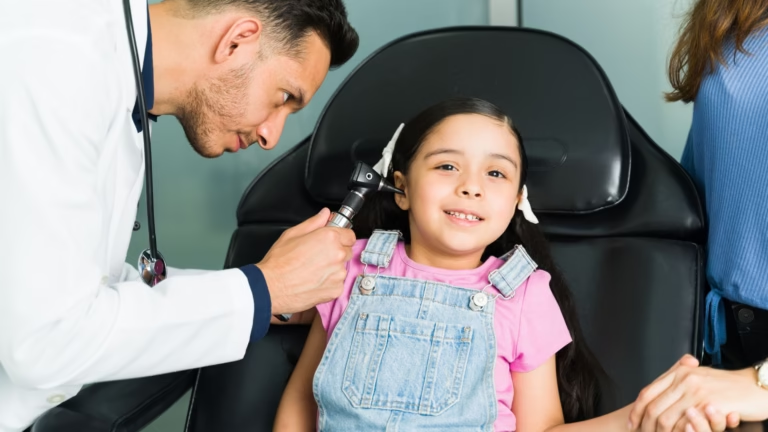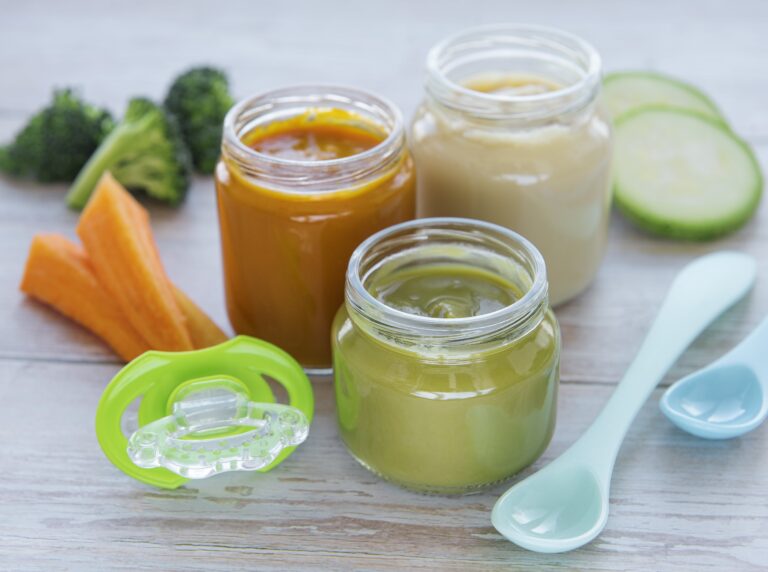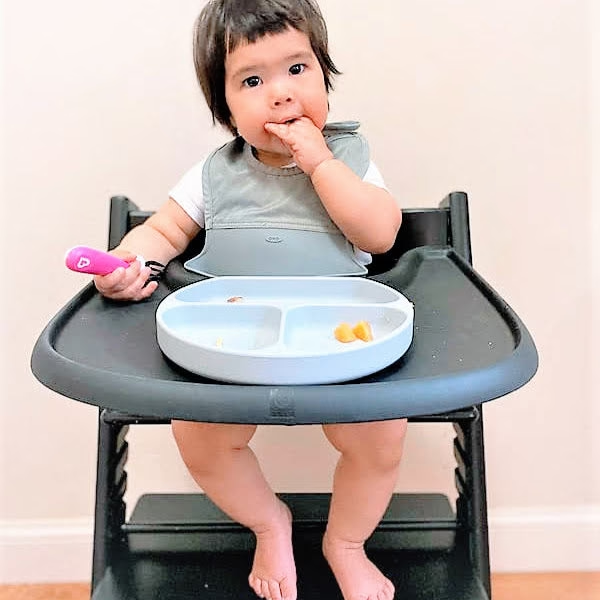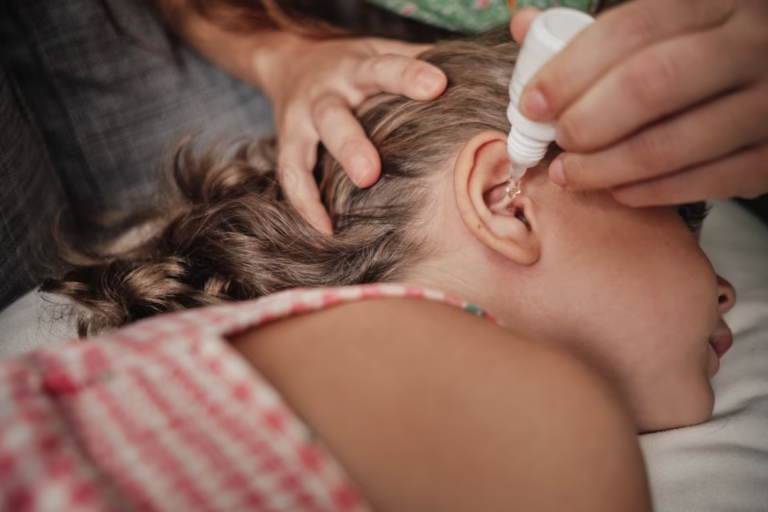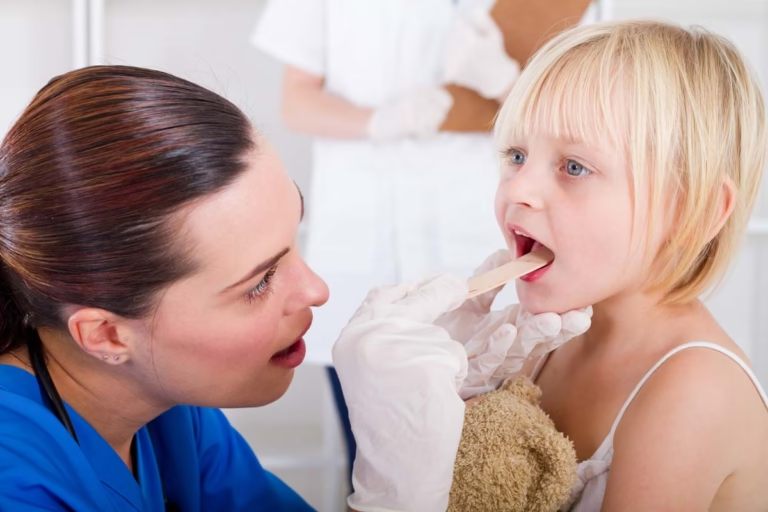Why Can’t I Feed My Baby Honey?: Infant Health Alert
Babies cannot eat honey due to the risk of infant botulism, a serious illness. Honey can contain Clostridium botulinum spores that babies’ immature digestive systems cannot handle.
Feeding honey to babies is a widely discussed topic among new parents, and for good reason. The World Health Organization and pediatricians strongly advise against giving honey to children under one year of age. This precaution stems from the fact that honey may carry the spores of the bacterium Clostridium botulinum, which can lead to infant botulism.
While harmless to adults and older children, whose mature digestive systems can prevent the spores from growing, these spores can germinate in a baby’s still-developing gut. This might lead to the production of botulinum toxin, which can cause muscle weakness and breathing problems. Educating parents about the dangers of infant botulism is crucial for the health and safety of their young ones, especially since the early signs of the illness can be subtle and easily overlooked.
The Hidden Dangers Of Honey To Infants
Honey contains spores of a bacterium named Clostridium botulinum. This bacterium can grow in a baby’s intestines.
Babies’ digestive systems are not mature enough to destroy these spores. As a result, infants may develop botulism.
Botulism is a rare but serious illness. It attacks the nerves and can lead to difficulty breathing, muscle weakness, and constipation.
To keep babies safe, avoid honey until they are over one year old.
Clostridium Botulinum: The Culprit In Honey
Babies under one should never eat honey. Honey has Clostridium botulinum, a bacteria harmful to infants. This bacteria can produce a toxin in a baby’s large intestine. Unlike adults, babies have immature intestines.
This can lead to infant botulism, a serious disease. In babies, their gut flora isn’t fully developed. Hence, they cannot protect themselves against this bacteria as adults can. Babies can have symptoms like weakness, constipation, and poor feeding.
Spotting Botulism Symptoms In Babies
Important for parents to know:
- Babies under one year old should not eat honey.
- Honey can contain botulism spores harmful to infants.
Be vigilant for botulism signs:
- Look for weak suckling. This is serious.
- Check for poor feeding or weak muscles.
- Constipation may be an early red flag.
- Alert if baby has a weak cry or seems lethargic.
Action you must take:
- If your baby shows these signs, get medical help right away.
- Timely care can make a big difference.
Infant Botulism: A Medical Explanation
Infant botulism happens when a baby ingests botulism spores. These spores grow inside the baby’s large intestine. Once there, they produce a dangerous toxin. This toxin can cause muscle weakness and breathing problems.
The spores that cause botulism are in soil and dust. They can also be in honey. That’s why honey is risky for babies under one year old.
| Age Group | Botulism Cases |
|---|---|
| Infants | High risk |
| Older Children | Lower risk |
| Adults | Rare cases |
Doctors report most botulism cases in infants. Older kids and adults can handle the spores better. They have a more developed digestive system.
Guidelines For Infant Diet And Honey
Babies under one year should not eat honey. Botulism spores in honey can make babies very sick. Introduce honey after they turn one year old.
Looking for honey substitutes? Try:
- Pureed fruits like bananas or apples
- Vegetable purees, sweet ones like carrots or sweet potatoes
- Maple syrup in small amounts
Myths Vs. Facts On Honey And Infant Health
Babies under one year should not eat honey. It contains spores of a bacterium that can grow in a baby’s immature digestive system. This bacterium is Clostridium botulinum, which is harmful to infants.
Infant botulism is a rare but serious disease. It can cause muscle weakness and breathing problems. The digestive systems of older kids and adults prevent the spores from growing into bacteria. This is why they can safely consume honey.
Parents must understand that all honey, raw or pasteurized, poses a risk. It’s not about the sweetness or quality of honey. It’s about the immune system of babies.
| Myth | Fact |
|---|---|
| Pasteurization kills all bacteria | Pasteurization does not destroy Clostridium botulinum spores |
| Organic honey is safe | All honey types contain the spores |
| Botulism is treatable, so risk is low | Prevention is critical, as treatment is difficult |
Emergency Response To Accidental Honey Ingestion
Seek medical help right away if your baby eats honey. Do not wait for symptoms to show. Tell the doctor what happened. Keep the honey container; it may help doctors.
Watch for any signs of infant botulism. Symptoms include weakness, constipation, and trouble feeding. A baby with these symptoms after eating honey needs urgent care.
After initial care, observe your baby for several weeks. Note changes in muscle tone and feeding patterns. Regular follow-ups with a pediatrician are critical. Monitor for developmental delays or respiratory issues, as these can be signs of botulism’s long-term impact.
Frequently Asked Questions For Why Can’t I Feed My Baby Honey
What Are Signs Of Infant Botulism?
Signs of infant botulism include constipation, weak cry, poor feeding, droopy eyelids, muscle weakness, and breathing problems.
Is It Ok To Add Honey To Baby Food?
No, do not add honey to baby food; babies under 1 year old risk infant botulism from honey.
When Did Honey Become Bad For Babies?
Honey has been considered unsafe for babies under one year old since the late 1970s due to the risk of infant botulism.
Conclusion
Understanding the dangers honey poses to babies is critical for their safety. Refrain from giving honey to your infant until they are at least one year old. This simple step helps protect against the risk of infant botulism – a rare but serious condition.
Remember, your little one’s health is paramount, and maintaining safe feeding practices ensures their well-being. Keep this advice in mind as your baby grows and explores the world of solid foods.
